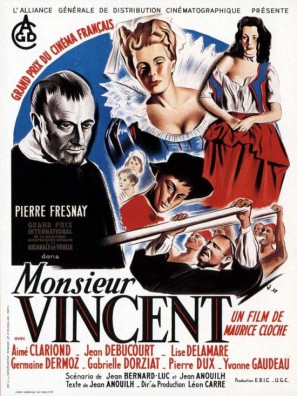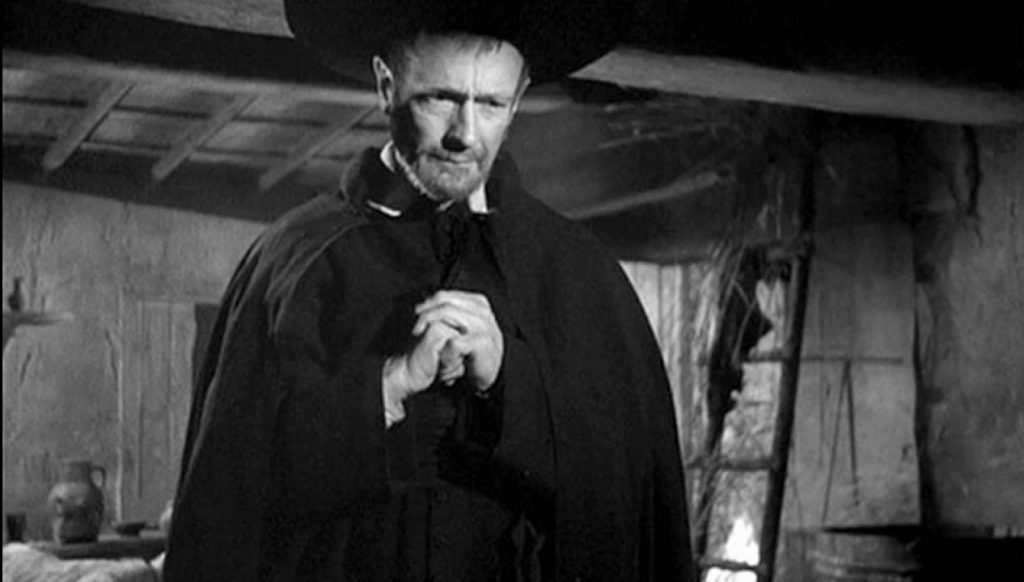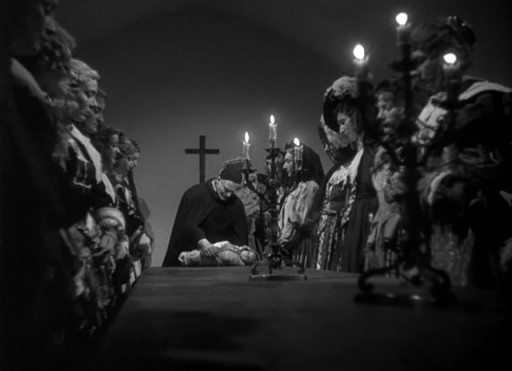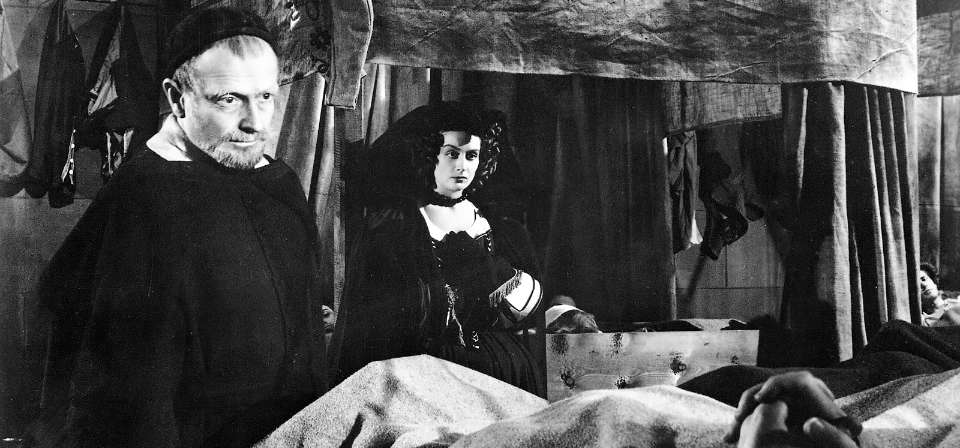Monsieur Vincent, directed by Maurice Cloche, was the second winner of the Best Foreign Language Film Oscar, though it was an honorary award, not a competitive category, voted on by a committee, rather than branch.
Grade: A- (**** out of *****)

The first winner of the Best Foreign Language Film Oscar was Italian Vittorio De Sica’s Shoeshine. 1947.
In Monsieur Vincent, the noted French actor Pierre Fresnay stars in the titular role, as Vincent de Paul, a man who devoted himself to helping the poor in 17th century France against various obstacles, including the Black Death.

Vincent was later canonized and the Catholic Church placed the film high on its list of inspirational religious epics.
This religious biopic is marked by a brilliant scenario from playwright Jean Anouilh and Jean Bernard-Luc, and sharp cinematography from Claude Renoir.

The black-and-white film opened in France in late 1947, and a year later (in December) in the U.S.

Credits:
Running time: 11 Minutes
Directed by Maurice Cloche
Produced by Viscount George de la Grandiere
Music: Jean-Jacques Grünenwald
Editing: Jean Feyte

Officially, the first winner in the Best Foreign Language Film category was La Strada in 1956, which helped established Federico Fellini as one of the most important European directors. Anthony Quinn, as Zampano, an itinerant strong man, and Giulietta Masina, as the young woman he buys and abuses as his clown and servant, gave memorable performances in a film that was also nominated for its Original Screenplay (by Fellini and Tullio Pinelli).
Prior to the creation of a separate, legitimate category, the Academy of Motion Picture Arts and Sciences (AMPAS) recognized several foreign films with an Honorary Oscar, beginning with Vittorio De Sica’s neo-realistic movie Shoeshine, in 1947.
The Academy leader and board member Jean Hersholt held that “an international award, if properly and carefully administered, would promote a closer relationship between American film craftsmen and those of other countries.” The citation for De Sica’s Shoeshine read: “The high quality of this motion picture, brought to eloquent life in a country scarred by war, is proof to the world that the creative spirit can triumph over adversity.”
The following pictures were singled out for Special Award before the foreign-language category was created:
1947: Shoeshine (Italy)
1948: Monsieur Vincent (France)
1949: The Bicycle Thief (Italy)
1950: The Walls of Malapaga (France-Italy)
1951: Rashomon (Japan)
1952: Forbidden Games (France)
1953: No citation
1954: Gate of Hell (Japan)
1955: Samurai: Legend of Musashi (Japan) (Not to be confused with Kurosawa’s The Seven Samurai).
Most o of the honored films had received theatrical distribution in the U.S., some of which a year or two after they were made.
Most came from established national cinemas, such as the French, the Italian, the Japanese, and the Swedish.
Some of them were also nominated for and/or won Oscars in other fields, such as screeplay or costume design (“Gate of Hell”).
More importantly, all the movies singled out by the Academy were directed by big-name filmmakers, such as Italian De Sica (Shoeshine and Bicycle Thieves), Japanese Akira Kurosawa (Rashomon), fellow-Japanese Teinosuke Kinugasa (Gate of Hell), and French Rene Clement (Forbidden Games).



